There is a wonderful scene in the ‘Jurying’ episode of Peep Show (s3 ep5 should you wish to revisit). When faced with Sophie’s new hippie-ish mates taking up roost in his flat after a night out, Mark decides to give them some life lessons before asking them to leave:
‘Listen, while we’re at it, there are systems for a reason in this world. Economic stability. Interest rates. Growth. It’s not all a conspiracy to keep you in little boxes, alright? It’s only the miracle of consumer capitalism that means you’re not …dying at 43 with rotten teeth.’
I find myself thinking of Mark’s speech/rant when discussing tax with others whose commitment to leftwing politics may be seen as idealistic or naïve. There are some leftwing taxation concepts that have merit (progressive taxation for example). But others just don’t seem to acknowledge the real world. In particular, the idea that income and capital gains should be subject to the same rates of taxation.
Capital growth is longer term and therefore subject to more risk. This makes a lower rate of taxation reasonable. But taxation is not just about revenue raising, it is also a tool for encouraging certain behaviours. The lower rate of capital gains tax, along with Business Asset Disposal Relief, can be seen as a tool for encouraging entrepreneurs to start businesses. Similarly, Investors’ Relief and the Enterprise Investment Scheme, provide incentives for the provision of funding to growing companies. The creation and funding of businesses are both necessary to maintain and grow employment. And where might we be without this?
Having explained the above, the conversation usually moves on – perhaps more out of fear that I will continue talking about tax rather than being a sign of implicit agreement. But there are some aspects of the UK Taxation System I struggle to justify. As an adviser on the sale and purchase of companies, the rules around the taxation of deferred consideration and earn-outs can present a real stumbling block when trying to structure a transaction in a way that is beneficial to both buyer and seller.
Without being overly technical, the broad position is as below:
- Where a fixed amount of consideration is payable as cash at some point in the future – so that it is left outstanding as a ‘simple debt’ – the full amount of the consideration is brought into account when calculating the chargeable gain in the tax year of the disposal. No discount is available to reflect the time value of money or the impact of any contingency. This means that tax is payable in advance of receiving the consideration as cash. In certain circumstances, the tax may be paid in instalments, but the rules are rigid and interest is charged on the outstanding balance.
- If instead, the fixed amount of consideration is embedded in a loan note, the usual position is that tax will be paid only when and if the loan note is redeemed.
- Where the value of consideration is calculable by reference to some future event, it will be treated as ‘unascertainable consideration’ (often referred to as an ‘earn-out’). If the consideration once known is to be satisfied in cash, the value of the right to receive the consideration must be brought into account when calculating the gain subject to tax in the tax year of the disposal. This can pose a computational headache, as well as often meaning that tax is payable in advance of consideration being received in cash.
- If instead the earn-out is settled by the issue of loan notes, tax can be deferred until the loan notes have been issued and redeemed, so that tax is only payable once cash has been received.
Irrespective of how the consideration is structured, there are mechanisms available that allow any overpayment of tax to be reclaimed so that the final amount of tax paid will generally reflect the gain realised in cash terms. However, the cash-flow disadvantages of structuring deferred consideration as a simple debt or receiving a cash settled earn-out can be painful and really take the shine off a transaction. Some vendors may be keen to ‘lock-in’ current rates of taxation – especially if they take the lion’s share of the consideration – but for smaller vendors (for example, option-holders), the cashflow disadvantage of paying tax on cash that has yet to be received can be painful.
Obviously, as tax advisers, our job is to structure transactions in a way that fulfils all parties’ objectives as far as possible. Sometimes, however, that is just not possible. Some foreign buyers have an aversion to loan notes – and some buyers may just have a ‘take-it or leave-it’ approach to structuring. In these circumstances, it can leave you questioning why distinctions are drawn between simple debts and loan notes and between earn-outs that are settled in cash and those that are settled by the issue of loan notes. The deferral and the uncertainty are the same, so why can’t the payment of tax be delayed until the point cash is received in all cases?
Looking for reasonableness and flexibility across the tax legislation is a fruitless task. I am reminded again of another Peep Show quote. This time from ‘Dance Class’ (s2 ep1) when Mark’s presence and ‘energy’ at an expressive dance class upsets another attendee;
‘There was a lot of new energy in the room tonight, and some of it was just so Rainbow Rhythms, and some of it was just so not Rainbow Rhythms’.
Unfortunately, the distinctions drawn in the taxation of deferred consideration and earn-outs can seem harsh and baseless – ‘just so not Rainbow Rhythms’.



